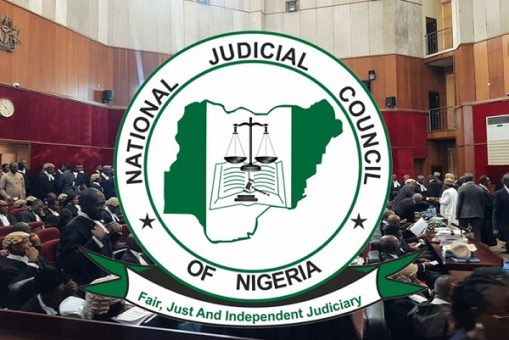In a move sending shockwaves through the Nigerian judicial system, the National Judicial Council (NJC) has recommended compulsory retirement for 10 judges in Imo State over alleged falsification of age, a scandal that experts say could stain the integrity of the bench for years to come.
The NJC, under the leadership of the newly appointed Chief Justice of Nigeria, Justice Kudirat Kekere-Ekun, made the explosive decision at its 109th meeting in Abuja on June 25. According to an official statement released Thursday night and signed by NJC's acting Director of Information, Mrs. Kemi Babalola Ogedengbe, nine of the judges manipulated their official records to extend their tenure illegally — a clear act of fraud under civil service rules.
The affected judges span both the High Court and the Customary Court of Appeal in Imo State. They include:
- High Court Judges: Justice M.E. Nwagboso, Justice B.C. Iheka, Justice K.A. Leaweanya, Justice Okereke Chinyere Ngozi, and Justice Innocent Chidi Ibeawuchi.
- Customary Court of Appeal Judges: Justice Tennyson Nze, Justice Ofoha Uchenna, Justice Everyman Eleanya, and Justice Rosemond Ibe.
Additionally, Justice T.N. Nzeukwu was recommended for compulsory retirement for bypassing the constitutional order of seniority and fraudulently accepting appointment as acting Chief Judge — despite being fourth in seniority — in violation of Section 271(4) of the Nigerian Constitution.
The Council didn’t stop there.
In an equally significant disciplinary action, Justice Isaac J. Essien of the National Industrial Court was formally censured and banned from elevation to any higher court for the next three years. His offense? A damning combination of bias, overreach, and conflict of interest. Among other things, he delivered a highly contentious order to confiscate over ₦1 billion of Nasarawa State’s funds, despite a pending appeal and unresolved motions. Worse, he reportedly used judicial letterhead to demand unpaid gratuity from the government — a clear ethics violation — and personally visited the Court of Appeal to check for filings in the same case.
The NJC described his behavior as a “gross breach” of the 2023 Revised Code of Conduct for Judicial Officers.
Reforms… and More Reprimands
As part of ongoing reforms, the NJC also strengthened its appointment guidelines, endorsing candidates only after reviewing public feedback. Notably, 86 petitions were received regarding proposed judicial appointments across states; 85% were favorable, and complaints lacking sworn affidavits were dismissed outright.
In other notable developments:
- Justice Daniel Okungbowa, Chief Judge of Edo State, was cautioned for abusing judicial discretion.
- Justice Gboko B. Okolosi of the Delta High Court received a final warning for repeatedly violating the constitutional requirement to deliver judgments within 90 days.
- In contrast, Justice M. A. Ikpambese, the Chief Judge of Benue State, was cleared of all allegations and declared a target of a politically motivated plot, spearheaded, shockingly, by the state’s Attorney-General, Fidelis Bemsen Mnyim, Esq., who will now be referred to the Legal Practitioners' Disciplinary Committee.
Shaking Up the Bench
In a move to renew leadership in the judiciary, the NJC recommended two new heads of court:
- Justice Adekanye Lekan Ogunmoye as Chief Judge of Ekiti State
- Kadi Abba Mammadi as Grand Khadi of Yobe State
It also recommended Mainasara Ibrahim Kogo Umar, Esq., for appointment by President Bola Ahmed Tinubu as Chairman of the Code of Conduct Tribunal (CCT), marking a critical moment in the drive to strengthen Nigeria’s legal accountability framework.
Additionally, 18 other judges were recommended for appointments across Cross River, Ogun, Zamfara, Plateau, Ebonyi, and Katsina states, after rigorous screening and public vetting.
The Bottom Line:
As Nigeria’s legal system grapples with growing scrutiny, the NJC’s latest crackdown may be a much-needed cleanup — or a controversial overreach, depending on whom you ask. One thing is certain: the illusion of untouchability on the bench may be crumbling.
Is this judicial discipline or political theater? Only time – and future court judgments – will tell.




